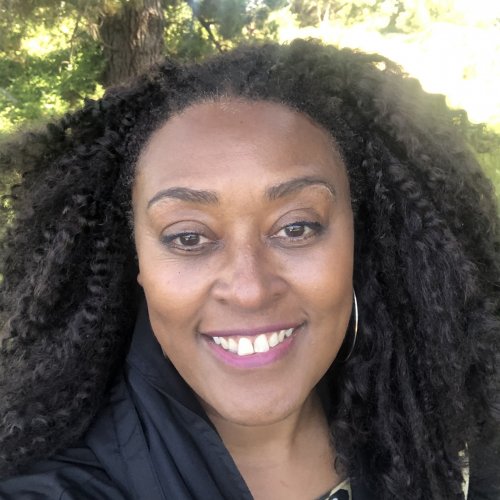
Sherry Simpson
What impact did your graduate experience have on your professional trajectory?
The specialized journalism program reinforced the idea that solutions-journalism is a key to adapting journalistic practice in the twenty-first-century world. It's no longer just about the NYT online, it's about how to report news while ensuring that public discourse and civic engagement are byproducts of an educated public. For this reason I choose to center my work in public television an essential component of democracy.
What from your USC Annenberg education best equips you to face the challenges of your field today?
I learned that the power of education stems from the cohort of students as well as the professors-- that dialogue surfaces great ideas and great ideas often lead to powerful solutions to endemic challenges. Sandy Tolan's class for one was the inspiration for my choice to focus on the intersection of social good and media. Through our in-class explorations of the ways that reporting touches communities and the role media plays in our society, I saw the need to emulate these safe spaces in society at large. Annenberg and particularly the Specialized Journalism program allowed me to shape a program that allowed travel, community work and reporting on ecosystems of power — it was an incubator for my current work within the PBS system. We are living in divisive times. We are witnessing the emergence of news deserts and distrust of media has skyrocketed. The integrity and commitment to journalistic practice that Annenberg embodies can be one key to fortifying our democracy.
What advice would you give for someone considering graduate studies at USC Annenberg?
Follow your instincts and apply. The world needs you. The education will help you to grow no matter what stage in life. A friend recently reminded me — iron sharpens iron. We live in times that demand personal agency and civic engagement be informed by trusted sources. We are far from fully evolved in terms of how we consume news and how it is reported. The rise of fake news has elevated the need for media literacy and new ways to authenticate what we consume as news. These are exciting propositions that can be troubling. The good news is that Annenberg is committed to the full exploration and evolution of journalism. So yes, journalism on a certain level is a calling. I am so glad that I took the plunge. As an empty-nester, it seemed like a major risk. What I learned was that it was risky to not follow my passion and to discover a whole new career.
Today my job is to innovate the world of public television by inventing new pathways for the public to use our documentaries to accelerate social change. This really wasn't a career when I started out as a documentary filmmaker years ago. Annenberg was key to opening up a new world of possibilities for me.
What is the one thing that a USC Annenberg student ought to take advantage of while enrolled?
Take courses in another USC professional school. I studied at both the Price School for Public Policy and the USC Cinematic Arts. The cross-curriculum learning strategy allowed me to explore adjacent disciplines while immersing myself at Annenberg. I use skills every day that were honed through my exposure to civil innovation and being fluent in the business of media is key to the survival of our industry. My education has been stellar. I was fully engaged and really cannot thank USC enough for being allowing programs that were flexible enough to craft a program that served my interest and prepared me for world-building.
Simpson’s notable projects:
- Instituted an impact innovation pilot for public television called Town Hall in a Box, which provides tools for communities to amplify the power of documentary films and community conversations to bridge divides and to build new futures.
- Developed and secured financing for multiple film, television and music projects, such as her production AMANDLA! for which she won an Emmy and Sundance Film Festival Awards.
- Deemed a subject-matter-expert on South Africa’s human rights struggle and lectures globally on the impact of reconciliation through film, arts and culture.